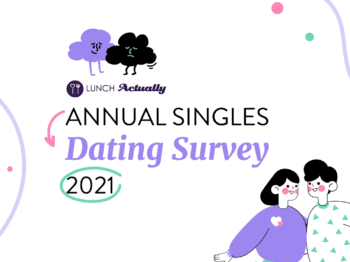The best age to have children in a relationship
When to have children in a relationship?
Tick-tock goes the biological clock! Not music to your ears but, for most people who has the dream about being a parent, you wonder when is the right time to have children, right? Well, in this article, we do the best we can to answer if there IS a right age to have children in a relationship, and if so, which magic number is it?
The Science and Facts
A 2012 National Center for Health Statistics reported that a higher proportion of couples who have children before their first anniversaries continue to be in the same relationship after 15 years, more so than couples who take a longer time to start a family. While the results are convincing, bear in mind (BEFORE you bear a child) there are MANY other factors you need to consider before you decide to bring another human being to this world (duh! right?). And we are going to list down a few to help you decide when to have children.
The first factor that is considered when thinking about pregnancy is, AGE. Just like most things, there is an prime age to have a child. A sociologist, John Mirowsky, from the University of Texas, claims early 20s is the best time for women to have a child. This is due the fact that both mother and child have the lowest probability of any health risk or complication during pregnancy.
Though there are many other contributing factor to health during pregnancy, couples in the 20s can generally not worry about health issues linked to pregnancy. Mirowsky conducted interviews with 1,890 mothers, and looked at factors such as the presence of chronic health illnesses. Through the collection of data, Mirowsky gathered that the best age to have a first child is 34. Study found that women who became mothers at the age of 34 were in fact significantly healthier than mothers who did so at a much younger age.
The Health Reason
In another study Angelo Alonzo, a sociologist at Ohio State, showed that women who became mothers after the age of 35 have health complications such as higher blood pressures and blood glucose levels, and poorer health and mobility, as compared to women who had their last babies by 35. This was also concurred by the American Congress of Obstetricians and Gynecologists that found the risk of stillbirth is higher amongst women older than 35 years old.
So combining both studies, women are pointed towards having babies from age 34 to 35, which is a tiny crack of window. With a lot of practice and very little protection women can have children in a successful relationship, provided the possible health complication due to pregnancy is closely monitored by gynecologists and a healthy lifestyle.
Contrary to popular ‘Asia Believes”, women over the age of 35 CAN have babies. However we cannot ignore the fact that the risks are higher for the baby and the mothers.
The Social Factor
Putting the biological issues aside, it is vital to consider expectations and goals of a couple before deciding to bring a baby into the world.In Ready: Why Women Are Embracing the New Later Motherhood, author Elizabeth Gregory shows that a large number of women are giving birth in their 30s and 40s. This is a choice they make happily because they find themselves to have a stronger family focus. They feel once their personal and professional goals have been achieved, they are more ready to carry the role of a mother without feeling it as an obligation. This is an contrasting situation to a teen mother. With unfinished academic track and a blurry career path, teen mothers heavy rely on family members and welfares. This adds the stress as a mother as well as to the relationship with their partners.
A successful relationship means being partners that support each other in all aspects of life, not AGREE to everything but SUPPORT in everything. In the study, “Partner support for individual self-expansion opportunities”, published by Hayley C. Fivecoat, it was stated that people achieved higher satisfaction in their relationships when their partners actively support their efforts to expand their own horizons. Whether the horizon is being a mother or a CEO or travelling the world, women's’ dreams should definitely be considered before venturing into parenthood. This would immensely contribute to the success of a relationship.
Fortunately there is no one golden age to have babies. But the best time to have a baby is when you as a person is fulfilled and accomplished with your goals and are in a healthy, supportive and loving relationship. So disregard all the whispers around you and let YOURSELF determine when you are ready to be the best parent you can be!




Recommended posts





